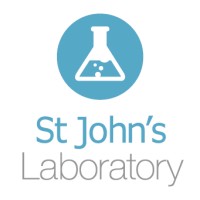OAZ2 / Unconjugated /
Product Details
| Conjugate | Unconjugated | |
|---|---|---|
| Clone | ||
| Target Species | Human, Mouse | |
| Applications | ELISA, WB | |
| Supplier | St John's Laboratory | |
| Catalog # | Sign in to view product details, citations, and spectra | |
| Size | ||
| Price | ||
| Antigen | ||
| Host | ||
| Isotype |
About OAZ2
The protein encoded by this gene belongs to the ornithine decarboxylase antizyme family, which plays a role in cell growth and proliferation by regulating intracellular polyamines. Expression of antizymes requires +1 ribosomal frameshifting, which is enhanced by high levels of polyamines. Antizymes in turn bind to and inhibit ornithine decarboxylase (ODC), the key enzyme in polyamine biosynthesis; thus, completing the auto-regulatory circuit. This gene encodes antizyme 2, the second member of the antizyme family. Like antizyme 1, antizyme 2 has broad tissue distribution, inhibits ODC activity and polyamine uptake, and stimulates ODC degradation in vivo; however, it fails to promote ODC degradation in vitro. Antizyme 2 is expressed at lower levels than antizyme 1, but is evolutionary more conserved, suggesting it likely has an important biological role. Studies also show different subcellular localization of antizymes 1 and 2, indicating specific function for each antizyme in discrete compartments of the cell. Alternatively spliced transcript variants have been found for this gene. [provided by RefSeq, Dec 2014]
The protein encoded by this gene belongs to the ornithine decarboxylase antizyme family, which plays a role in cell growth and proliferation by regulating intracellular polyamines. Expression of antizymes requires +1 ribosomal frameshifting, which is enhanced by high levels of polyamines. Antizymes in turn bind to and inhibit ornithine decarboxylase (ODC), the key enzyme in polyamine biosynthesis; thus, completing the auto-regulatory circuit. This gene encodes antizyme 2, the second member of the antizyme family. Like antizyme 1, antizyme 2 has broad tissue distribution, inhibits ODC activity and polyamine uptake, and stimulates ODC degradation in vivo; however, it fails to promote ODC degradation in vitro. Antizyme 2 is expressed at lower levels than antizyme 1, but is evolutionary more conserved, suggesting it likely has an important biological role. Studies also show different subcellular localization of antizymes 1 and 2, indicating specific function for each antizyme in discrete compartments of the cell. Alternatively spliced transcript variants have been found for this gene. [provided by RefSeq, Dec 2014]
Experiment Design Tools
Panel Builders
Looking to design a Microscopy or Flow Cytometry experiment?
Validation References
Reviews & Ratings
| Reviews |
|---|
Looking for more options?
60 OAZ2 antibodies from over 12 suppliers available with over 12 conjugates.





